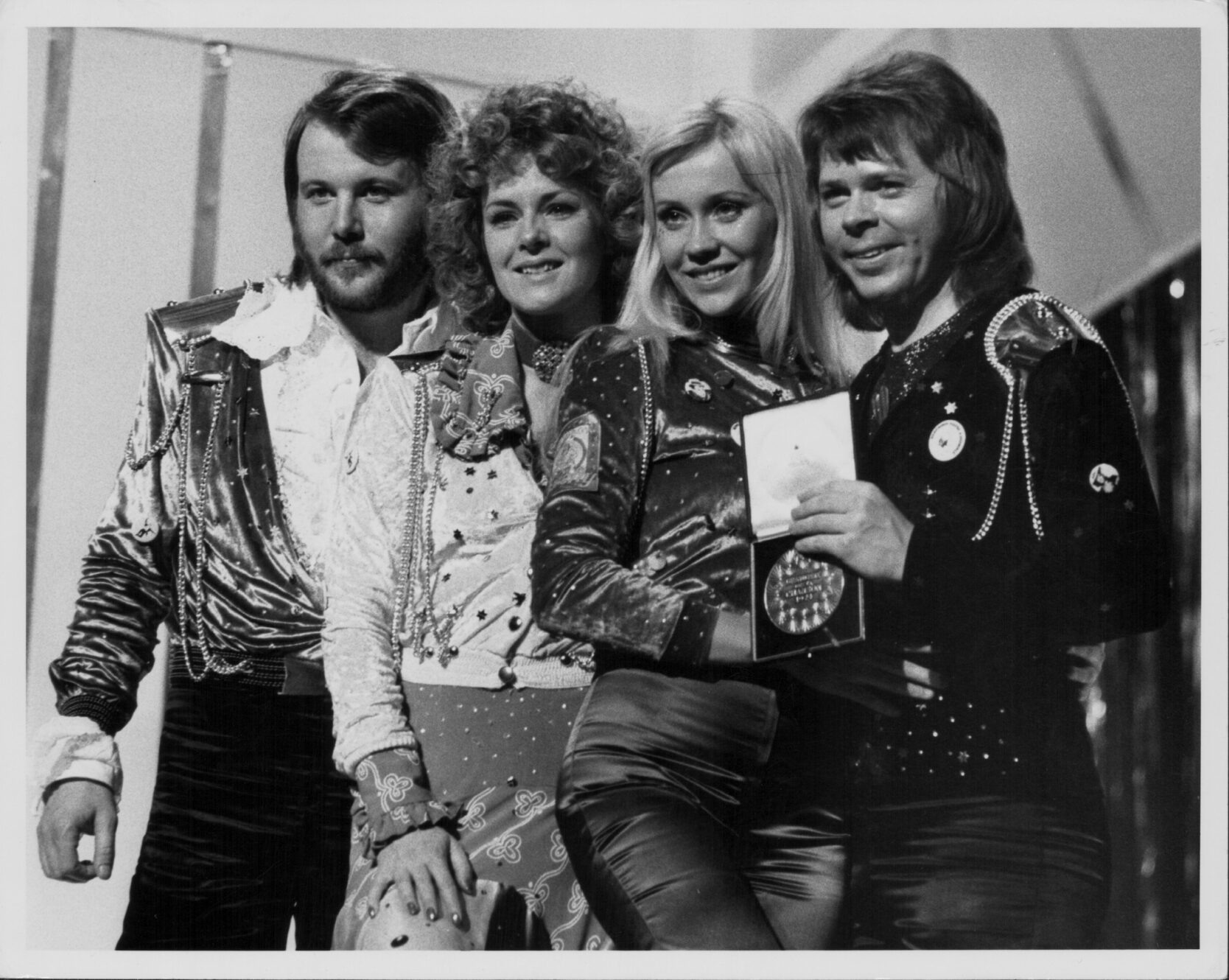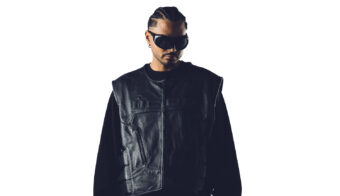A vital moment in democracy is nearly upon us. A vote that may change the course of history.
I am speaking, of course, of Eurovision. This week is the 68th annual iteration of this trans-European, balls-to-the-wall original pop song competition. Musical acts from 37 countries have descended upon Malmö, Sweden, their platform shoes, laser fog machines, and disco-ball underpants in tow. They are here to vie for top place before an official panel of judges from the competing nations, and before us, the voting public.
Who will emerge triumphant? It’s anyone’s game (except for Moldova’s, probably). A lot of strategy and science go into crafting a winning Eurovision entry, including everything from song selection competitions, international politicking, and occasionally some good old-fashioned cheating.
To give you some sense of what to expect at the Grand Final on Saturday, I’ve analyzed the 10 entries considered most likely to win by EurovisionWorld.com, which aggregates the odds across 16 of the top bookmarking websites. Starting with…

Also Read
The Exquisite Agony of Myriam Gendron
10. U.K.: “Dizzy,” by Olly Alexander
“Dizzy” is an appealing, if fairly middle-of-the-road, house-influenced radio-pop song. I’ve been a casual fan of Olly Alexander’s since his appearance in God Help the Girl, the feature film directorial debut of Stuart Murdoch, lead singer of Belle & Sebastian. So there’s plenty to recommend this entry. That said, it is not going to win Eurovision. The U.K. hasn’t won since 1997, and that’s not going to change this year.
Much ink has been spilled over why the U.K. flops at Eurovision. One theory is that they don’t send good acts to Eurovision because they don’t need to. Along with France, Spain, Germany, and Italy, the U.K. is one of the “Big Five”—the countries who make the largest financial contributions to the contest and who therefore automatically qualify for the finals. This reeks of payola, but whatever. They are essentially the permanent members of Eurovision’s Security Council.
Another theory is that the U.K. is too classy and important to bother sending good acts to Eurovision. As Nick Duerden wrote for The Guardian, “It’s possible, of course, that we’ve always felt a little superior, culturally, to our European neighbours. If Eurovision is ultimately a kitsch fest, then we’ll only ever proffer a little kitsch of our own.”
In other words, Britain thinks it’s too good for Eurovision. In The Spectator, Fraser Nelson wrote, “Perhaps because we have the best musicians in Europe, arguably the world, we don’t really try in Eurovision: seeing it as the equivalent of a musical bad-taste party rather than recognising it as a genre—schlager—loved by millions worldwide. We fail because we don’t really try.”
But among ordinary Britons, the preferred explanation for the U.K.’s underperformance is, as my British friend Will said, “People hate us.”
“We’re not bad at Eurovision,” my other British friend Hannah told me. “It’s all prejudice.” In this version of the story, the U.K. would triumph if only the rest of Europe would stop punishing them for things like Brexit and so on.
If this sounds political, that’s because it is. As you’ll see as we keep going through the top 10 entries, Eurovision is not a “vote for your favorite European nation” contest, but it’s not not a “vote for your favorite European nation” contest, either.
9. Greece: “Zari,” by Marina Satti
This music video starts out with what looks like the opening scene from Love Actually, then proceeds to follow Satti as she sings mostly in Greek (with the occasional English interjection like “Put your hands up!”) and dances around the Acropolis and other tourist sites.
Satti’s music has been compared to Spanish artist Rosalía, if that gives you some sense of what to expect. The zurna plays a prominent role in “Zari,” which may be why someone on Reddit described this one as “one of the top Marmite entries of the year.” (That’s British slang for “either you love it or you hate it.”) Personally, I don’t like Marmite—but I’m American, so this is not a surprise.
That leads me to one of my key talking points on Eurovision: Americans—including me, and potentially you too—are not the target audience. I’m not saying we shouldn’t watch or enjoy or get way too passionate about arguing that Gina G. was robbed. I’m just saying that this event is not designed for us. If a Eurovision entry is not to my liking, I do not take that to mean that it’s an inferior song so much as that I am an unqualified judge of pan-European tastes. I am an outsider observing a culture that is not designed for my approval, and that’s okay!
2024 will be only the second year that viewers outside of the participating countries are able to vote in the Eurovision finals. Why are they giving me and my fellow countrymen any say in this matter? A Eurovision spokesperson told NPR that the reason why they’ve opened up worldwide voting is “to remain relevant and exciting,” by which I think they mean “to make more money.” (Each vote costs €.99.)
8. Israel: “Hurricane,” by Eden Golan
This entry is an English-language ballad that gives me Adele vibes. The challenge of ballads is that they don’t naturally include the explosions of fire and glitter that make Eurovision the kitsch spectacle of the year. Instead, with “Hurricane” we get a crew of modern dancers—which is not nothing, to be clear, but it’s not literal fire, either.
Golan has been around the Eurovision circuit for nearly a decade now, having competed in Junior Eurovision when she was 12. She did not win then, and it’s highly unlikely that she will win now; many countries have called for Israel to be banned from this year’s contest due to the ongoing war in Gaza. Even assuming the performance goes on as planned, there are very likely to be countries who won’t vote for Israel’s entry regardless of Golan’s performance quality.
7. Ireland: “Doomsday Blue,” by Bambie Thug
Finally, some fire! This music video starts out with burning candles and a handmade book entitled “BLAZE BIBLE,” so right away we know what we’re in for. Bambie Thug’s visual aesthetic is goth, their musical aesthetic is screaming, and their physical aesthetic is writhing.
I listened to “Doomsday Blue” three times and still had no idea what musical genre to place it in, which seemed like something I should figure out before publishing an article about it in SPIN. Eventually I asked the Internet and discovered that Bambie Thug has coined the term “Ouija-pop” to describe their music. Of course they have.
6. France: “Mon Amour,” by Slimane
This is another Big Five entry, and a love ballad to boot. (I do not speak French, but most of the song’s three minutes are taken up by Slimane crooning “mon amour” and “je t’aime” while a piano plays in the background, so even I could figure out the gist.)
France’s last Eurovision win came in 1977, but I guess enough bookmakers believe 2024 could be their comeback that they’ve made it onto this Top 10 list. According to science, slow songs about love are disproportionately likely to win Eurovision, so maybe this really will be France’s year… but for my personal tastes, I’d prefer three minutes of nightmarish ouija-pop over a doleful man asking us to love him.
5. Netherlands: “Europapa,” by Joost Klein
As far as I’m concerned, this is what Eurovision is all about: a man sporting shoulder pads as broad as wings, singing a 2 Unlimited-inspired gabber song that seems to be about the importance of the European Union but is also, somehow, about his dad.
“Europapa”—which translates to “Eurodaddy”—starts out with an impassioned cry (“Europe, let’s come together! It’s now or never! I love you all!”) while the music video depicts a flock of birds, Dutch windmills, and the EU flag flapping in the wind. Klein goes on to namecheck escargots, fish and chips, and paella (presumably courting votes from France, England, and Spain, respectively). At one point a background dancer does a backflip, and by the end everything is literally on fire. That’s Eurovision, baby!
4. Italy: “La Noia,” by Angelina Mango
The most notable thing about this music video is that Angelina Mango has SO MUCH HAIR. It’s absolutely miles of hair. If her hair were a highway system, you would get lost in it and never find your exit.
Musically, this is a catchy, cumbia-inspired pop song whose lyrics are almost entirely in Italian, except for one small part where she rhymes “princess” with “business.” The title, “La Noia,” translates to “The Boredom,” though I would not describe this as a boring song. (It is not, for example, a ballad.)
I know what you’re wondering, though. “Will there be fire?” Do not fear. While the music video includes little to no fire, Mango’s rehearsals suggest plenty of pyrotechnics.
3. Ukraine: “Teresa & Maria,” by Alyona Alyona & Jerry Heil
This music video starts out with Jerry Heil sporting a pair of extremely wide-legged pants and singing in Ukrainian about Mother Teresa and the Virgin Mary. It’s an emotional pop song with a heavy beat. Halfway through, Alyona Alyona jumps in with an entirely unexpected (to me) rap break. While the genre has turned on a dime, we’re still sticking close to the matter at hand—i.e. Mother Teresa.
Ukraine last won Eurovision in 2022, a few months after Russia’s invasion. These two events are not unconnected. Russia, meanwhile, has been banned from competing in Eurovision for the past three years. It’s not likely that Ukraine will log another win so soon after their last one, but it’s not impossible either. The last time we saw anything like that was in the mid-1990s, when Ireland dominated four out of five consecutive years. History shows it can be done!
2. Switzerland: “The Code,” by Nemo
This song cycles between operatic singing and rap, with some techno beats in the background. Its multi-genre tour makes it a solid pick in your Eurovision bets. (I once again was surprised by this rap break, which is a real “fool me once, shame on you; fool me twice, shame on me” situation.) The music video features multiple costume changes in rapid succession, which bodes well. Overall, I got some strong Mika vibes—which also seems promising, considering that Mika co-hosted Eurovision 2022.
Nemo’s Wikipedia entry states, “On the second season of The Masked Singer Switzerland in 2021/2022, Nemo was unmasked as a panda and finished in fifth place.” The phrasing of this statement strongly implies that Nemo, rather than being a human adult, is in fact secretly a panda whose true identity has been previously unmasked and may yet be unmasked again. Here’s hoping that 2024 is the first year a panda wins Europe’s foremost musical competition.
1. Croatia: “Rim Tim Tagi Dim,” by Baby Lasagna
Okay, I understand why this song is the odds-on favorite. The vocals are technically in English, but they sound like they’re being performed by DJ Crazy Times. The music is a spasmodic mix of heavy metal, techno, and trap. The video prominently features a one-eyed cat, an olde-fashioned washerwoman, a guitarist and drummer wearing full-face white mesh masks, and of course fire.
Meanwhile, the lyrics, which cleverly rhyme “now” with “ciao” and “cow,” also include such gems as “Gonna miss my hay, gonna miss my bed, but most of all, I’mma miss the dance, so come on y’all, let us prance.” Those lyrics might sound silly, but actually they are about young Croatians immigrating in search of economic opportunities. Bet you didn’t see that coming! Each minute in this song does very little to prepare you for what might happen in the next minute, and that, as far as I’m concerned, is the mark of a worthy Eurovision entry.
You can (and should!) watch the Eurovision 2024 semifinals at 3 p.m. ET on May 7 and May 9, and the Grand Final at 3 p.m. ET on Saturday, May 11. Stay tuned for fire.




